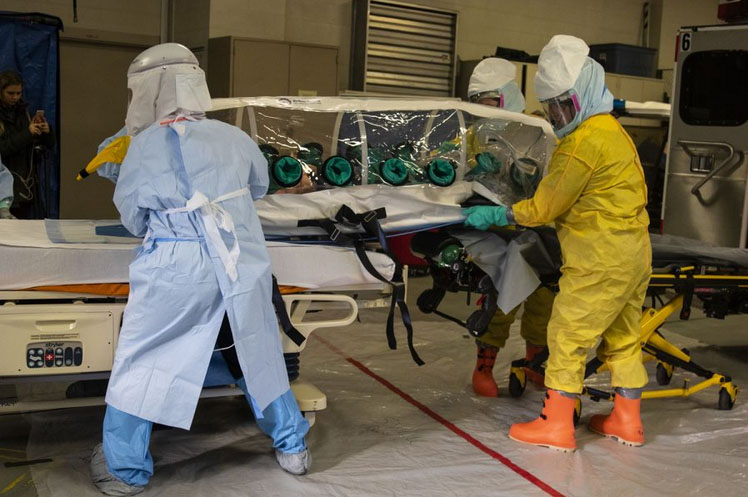From 2014 to 2016, more than 28,000 cases of Ebola were reported in West African countries Guinea, Liberia, and Sierra Leone. This highly infectious disease became an international health emergency, with seven other countries also becoming affected.
With eleven cases treated in the United States, analyzing the quality of responsiveness among hospitals across the nation is essential. A team of researchers, including Internal Medicine faculty members, conducted a systematic literature review of 35 articles published in PubMed, Cochrane Library, CINAHL, Embase, and Web of Science. The systematic literature review detailed challenges that hospitals in developed countries experienced when responding to the Ebola epidemic. The review’s authors include Eli Perencevich, MD, MS; Marin Schweizer, PhD; Rajeshwari Nair, PhD; Aaron Seaman, PhD; and Mireia Puig-Asensio, MD, PhD.

Their study revealed that although Ebola training helped healthcare workers (HCW) improve their infection control practices, including the use of personal protective equipment (PPE), there were still issues keeping hospitals from providing an optimal response.
“The biggest challenge was related to PPE, followed by problems with hospital infrastructure and resources. HCWs feared managing Ebola patients, and this affected their willingness to care for them,” the authors wrote. “Standardizing protocols, PPE types, frequency of training, and providing financial support will improve future preparedness. Doubts remain whether preparations resulted in sustained improvements.”
The review was published in the most recent issue of Clinical Infectious Diseases. Schweizer and Puig-Asensio shared the importance of the project in a Q&A featured in Healio’s Infectious Disease News.

“It is likely that most high biocontainment units are still well-prepared to deal with Ebola patients and other highly infectious diseases,” Schweizer and Puig-Asensio wrote. “It is uncertain to what extent the 2014–2016 preparations resulted in long-lasting changes or improvements. In fact, how well we did sustain hospital preparedness and maintained health care workers’ skills is what will significantly determine our current and future preparedness.”
Other researchers who worked on the study include emergency management coordinator for University of Iowa Health Care, Michael Hartley; Janna Lawrence, deputy director of the University of Iowa’s Hardin Library for the Health Sciences; and the Joint Commission’s Barbara Braun, PhD; Kenneth Rasinski, PhD; and Salome Chitavi, PhD.
One comment on “Hospital responses to Ebola reviewed”